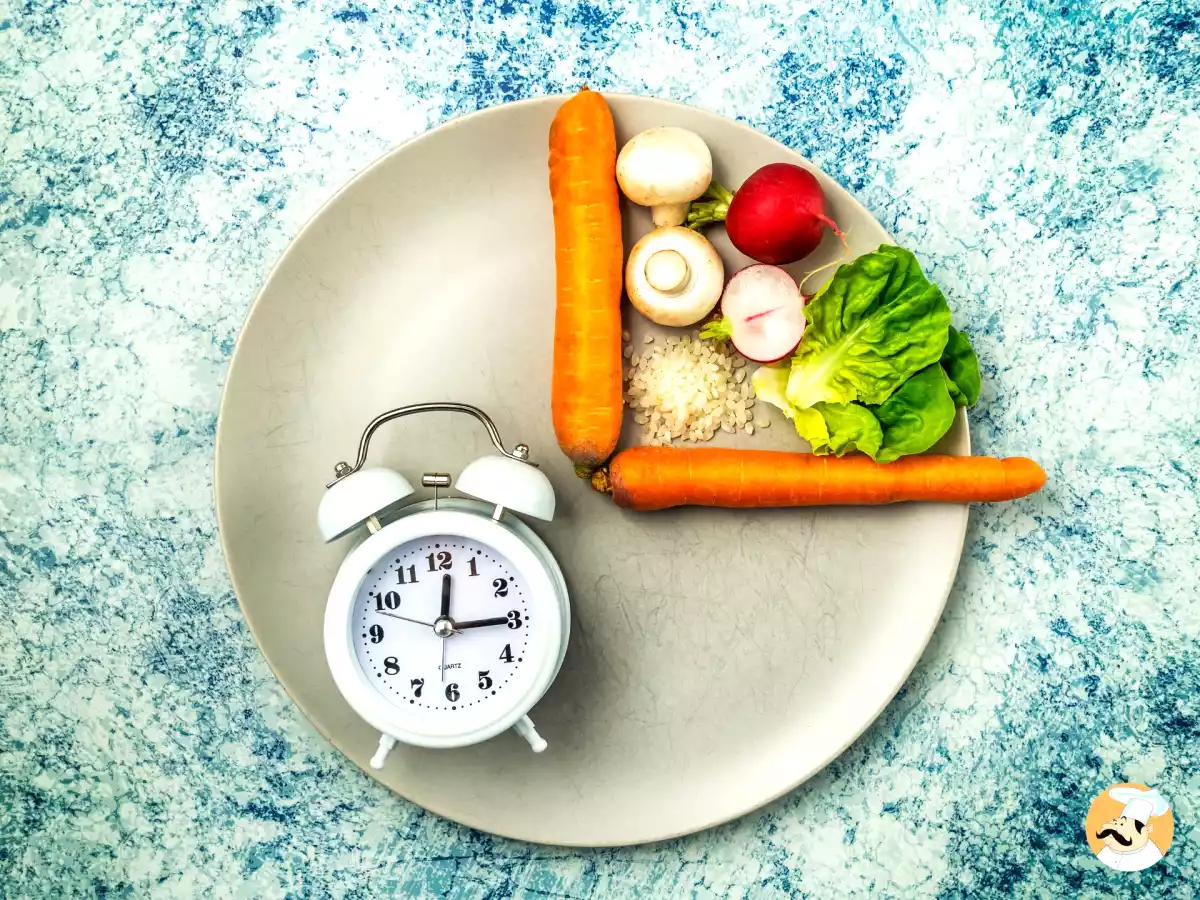The wonderful benefits of intermittent fasting!

Intermittent fasting is a nutritional approach that alternates between periods of fasting and periods of food intake. Rather than focusing on what you eat, this method emphasizes when you eat. This strategy that has grown in popularity in recent years thanks to its many potential health benefits, but you need to follow a few rules and be careful! We explain it all here:
Weight loss and body fat management
Weight loss is one of the most sought-after benefits of intermittent fasting. By limiting periods of food intake, it's easier to reduce overall calorie intake, which can lead to weight loss. What's more, intermittent fasting helps the body to use its fat reserves as an energy source, thus promoting body fat reduction.
Improved insulin sensitivity
Intermittent fasting can improve insulin sensitivity, which is crucial for managing blood sugar levels and preventing type 2 diabetes. Insulin levels drop during periods of fasting, making it easier for the body to burn fat. A study published in the journal Cell Metabolism showed that intermittent fasting could reduce insulin levels by 20-31%.
The different intermittent fasting methods
- The 16/8 method
The 16/8 method is one of the most popular. It involves fasting for 16 hours each day and limiting food intake to an 8-hour window. For example, if you finish dinner at 8pm, you won't eat until noon the next day.
- 24-hour fasting
This method involves fasting for 24 hours once or twice a week. This means that if you finish dinner at 7pm one day, you won't eat until 7pm the next day.
- The 5:2 method
The 5:2 method involves eating normally for 5 days of the week and restricting calories to around 500-600 for the remaining 2 days. These days of calorie restriction need not be consecutive.
- Alternate day fasting
Alternate day fasting involves alternating between fasting days and days of normal food intake. This can mean eating normally one day and fasting or consuming very few calories the next.
How do I get started?
Start by choosing a method that fits easily into your lifestyle. The 16/8 method is often a good place to start, as it's relatively easy to follow.
It's crucial to listen to your body. If you experience symptoms of extreme fatigue, dizziness or discomfort, adjust your approach. Intermittent fasting isn't for everyone, and it's important to find out what works for you.
During periods of fasting, make sure you stay well hydrated. Water, tea and sugar-free coffee are your best allies.
When the fasting period is over, avoid compensating by overeating. Opt for balanced, nutritious meals to maximize the benefits of fasting!
Comments and advice
Intermittent fasting is not a one-size-fits-all solution. It can be customized to suit your needs and lifestyle. Some may prefer to fast in the morning, while others may find it easier to skip dinner.
Before starting any form of intermittent fasting, it's advisable to consult a healthcare professional, especially if you have any pre-existing medical conditions.
 Adèle Peyches
Adèle Peyches
Comments